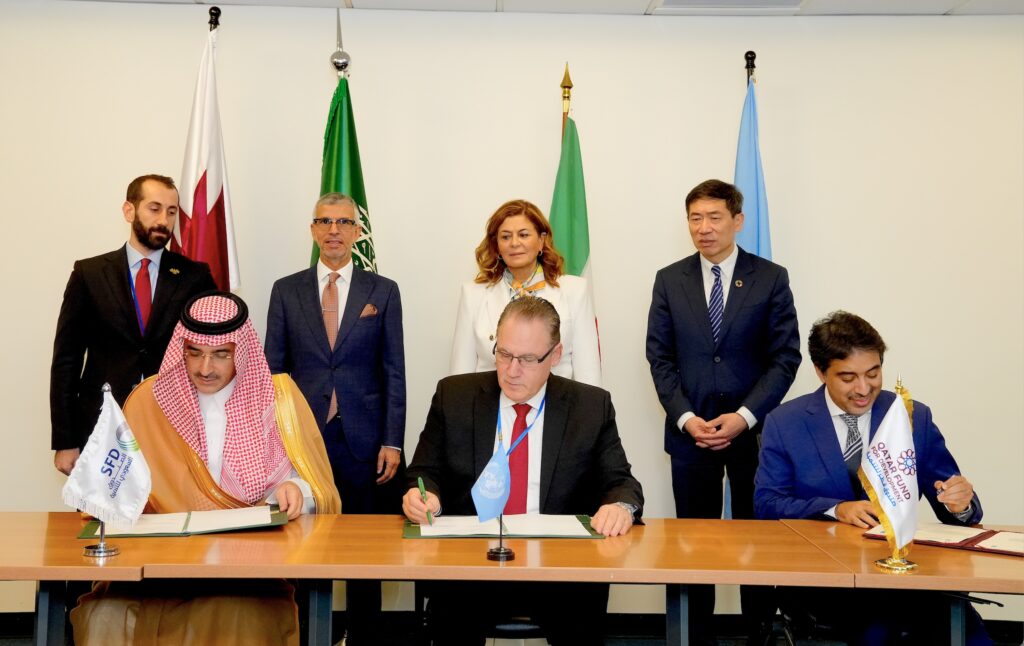Qatar stands as one of the most forward-thinking nations in the Middle East, continuously shaping its future through a strong commitment to innovation, education, and leadership. The country’s rapid transformation over the past few decades has not just been about economic growthn it’s been about people. Recognizing that the foundation of national progress lies in skilled, visionary, and ethical leaders, Qatar has invested significantly in leadership development programs for its public sector workforce. These initiatives are designed to cultivate capable leaders who can navigate modern challenges, drive public service excellence, and embody Qatar’s national values.
The Qatari government understands that to sustain development, leadership must evolve. Through its strategic vision known as Qatar National Vision 2030, the nation aims to build a highly efficient, accountable, and innovative public administration. Central to this vision are leadership development programs that enhance competency, strengthen decision-making, and inspire a culture of service-oriented governance.
Qatar’s Vision for Leadership Excellence
At the heart of Qatar’s public sector leadership programs lies a clear purpose: to empower leaders who can guide government organizations toward sustainable progress. The Qatar National Vision 2030 provides a framework for human development as one of its four pillars, emphasizing the creation of a capable and motivated workforce. Leadership is seen not as a position but as a responsibility to foster trust, integrity, and effectiveness within the government.
Qatar’s leadership development initiatives focus on preparing leaders for both the present and the future. They aim to build an agile mindset, encourage innovation in public administration, and ensure alignment with the national development goals. This holistic approach combines practical skill-building, academic knowledge, and real-world application.
The Role of the Institute of Public Administration
One of the most influential institutions driving leadership development in Qatar’s public sector is the Institute of Public Administration (IPA), operating under the Civil Service and Government Development Bureau. The IPA has designed a comprehensive framework to train current and future public sector leaders.
Its programs focus on strategic leadership, management efficiency, digital transformation, and public policy execution. The institute also emphasizes the importance of ethics, transparency, and citizen-centered service. Participants undergo a rigorous training experience that combines workshops, simulations, mentorship, and performance assessments.
Through partnerships with global institutions and universities, the IPA ensures that Qatari leaders are equipped with international best practices while maintaining a strong sense of national identity and values.
Qatar Leadership Centre: Nurturing Future Decision Makers
The Qatar Leadership Centre (QLC) is another cornerstone of the nation’s leadership development landscape. Established under the directive of His Highness Sheikh Tamim bin Hamad Al Thani, the Centre is dedicated to preparing the next generation of national leaders who will guide Qatar’s future with confidence and vision.
QLC’s programs are divided into three main tracks: the National Leadership Program, Executive Program, and Rising Leaders Program. Each track caters to a different level of leadership within the public and private sectors. The programs are designed to enhance leadership capabilities through exposure to real-world scenarios, interactive learning, and strategic networking opportunities.
The curriculum emphasizes analytical thinking, decision-making, communication, and innovation skills essential for leaders who aim to transform government institutions and deliver public value effectively.

Fostering a Culture of Continuous Learning
Leadership development in Qatar is not limited to a one-time course or training program. It’s a lifelong journey encouraged through mentorship, evaluation, and ongoing education. The Qatari government promotes a culture of continuous learning within the public sector to ensure leaders remain adaptable in a rapidly changing world.
Workshops, seminars, and advanced executive programs are regularly organized for senior officials, department heads, and emerging leaders. These initiatives encourage them to engage with new technologies, understand global governance trends, and strengthen their emotional intelligence.
Such initiatives reflect Qatar’s recognition that great leaders are those who never stop learning. The government ensures that every leadership development effort aligns with its broader national objectives and enhances institutional performance.
Leadership for Digital Transformation
In the era of digital governance, Qatar’s leadership programs are integrating technology-focused training to prepare public servants for the challenges of the 21st century. The government’s e-Government strategy, which aims to make services more efficient and transparent, requires digitally fluent leaders who can drive change and innovation.
Training modules on artificial intelligence, data-driven decision-making, and digital ethics are increasingly being incorporated into leadership development curriculums. Leaders are trained to utilize technology not only as a tool for efficiency but also as a means of enhancing public trust and citizen engagement.
Digital transformation leadership ensures that Qatar remains competitive globally while delivering smarter, faster, and more inclusive public services domestically.
Building Ethical and Accountable Leadership
Qatar’s public sector leadership programs are deeply rooted in ethical governance. The government understands that leadership without integrity can never achieve lasting success. Therefore, ethics and accountability are central pillars in every leadership development course.
Programs emphasize the importance of transparency, fairness, and accountability in decision-making. Leaders are encouraged to uphold values that strengthen public confidence in government institutions. This moral framework ensures that as leaders gain power and influence, they remain committed to serving the public interest above all else.
By embedding ethical standards into leadership development, Qatar ensures its public institutions reflect honesty, responsibility, and compassion values that are essential for sustainable governance.
Women’s Empowerment in Leadership
One of the most inspiring aspects of Qatar’s leadership development initiatives is the strong emphasis on women’s empowerment. The country recognizes that progress cannot be achieved without gender equality in leadership roles. As part of Qatar National Vision 2030, several programs aim to prepare Qatari women for leadership positions within the public sector.
Institutions such as the Qatar Leadership Centre and Hamad Bin Khalifa University have introduced specialized programs that equip women with leadership and management skills. These initiatives foster confidence, communication, and decision-making abilities while providing mentorship from senior leaders.
As a result, more Qatari women are now assuming influential roles in ministries, government agencies, and policy-making bodies. This shift not only contributes to a balanced leadership environment but also enhances creativity, empathy, and inclusiveness in public decision-making.
Developing Young Leaders for the Future
Qatar’s leadership vision also extends to nurturing young talent. The government invests heavily in programs that identify and develop young leaders who show promise and passion for public service. These initiatives include internships, scholarships, and youth development workshops focused on strategic thinking, leadership ethics, and problem-solving.
The idea is to instill leadership qualities early empowering the next generation to lead with innovation and empathy. The youth programs often include exposure to government projects, interactions with senior officials, and community service assignments that help them understand the essence of servant leadership.
Through these efforts, Qatar is building a future workforce that is visionary, responsible, and dedicated to contributing positively to the nation’s growth.
Collaborative International Partnerships
Qatar’s leadership development journey has been enriched by global collaborations. The country has partnered with some of the world’s most prestigious universities and training organizations to bring international expertise to its leadership programs.
These partnerships allow participants to gain exposure to global governance models, modern leadership theories, and innovative problem-solving techniques. Leaders who participate in these programs return with a broader worldview, enabling them to apply best practices while tailoring solutions to Qatar’s cultural and administrative context.
Such collaborations ensure that Qatar’s public sector leaders remain at the forefront of global excellence while preserving the nation’s values and traditions.
Innovation as a Leadership Mindset
Innovation is a cornerstone of Qatar’s leadership philosophy. Leaders are encouraged to think beyond conventional boundaries and create solutions that enhance efficiency and impact. Leadership programs often include innovation labs, case studies, and practical exercises where participants are challenged to design new approaches to governance.
This mindset has contributed to the modernization of Qatar’s public administration, leading to faster services, improved citizen satisfaction, and smarter policy implementation. The culture of innovation ensures that leaders do not merely manage systems they continuously improve them.
Leadership in Sustainability and Social Responsibility
Aligned with the goals of Qatar National Vision 2030, leadership training also emphasizes sustainability and social responsibility. Leaders are educated on the importance of balancing economic growth with environmental protection and social welfare.
Programs teach how to develop sustainable policies, manage public resources responsibly, and ensure inclusive development that benefits all citizens. Leaders are trained to make decisions that contribute to long-term prosperity rather than short-term gains.
By integrating sustainability into leadership development, Qatar is nurturing leaders who think holistically leaders who understand that true progress means leaving behind a legacy of balance and well-being.

Measuring the Impact of Leadership Programs
The success of Qatar’s leadership initiatives is continuously evaluated through performance metrics, feedback systems, and organizational assessments. The government focuses on tangible outcomes such as improved service delivery, increased efficiency, and greater citizen satisfaction.
Participants’ progress is monitored over time to ensure that the lessons learned translate into real-world results. Departments that demonstrate leadership-driven improvements serve as models for others, reinforcing a cycle of excellence and accountability across the public sector.
This results-oriented approach ensures that leadership development remains not just an academic exercise but a powerful tool for national transformation.
Challenges and the Path Forward
While Qatar’s leadership development programs have made remarkable progress, challenges remain. The rapid pace of technological change, global competition, and evolving citizen expectations demand continuous adaptation. To address these challenges, Qatar is investing in future-ready leadership that combines innovation with emotional intelligence.
The next phase of leadership programs will likely focus on interdisciplinary training, digital fluency, and global collaboration. Qatar is determined to maintain its momentum and ensure that every public sector leader contributes effectively to achieving the national vision.
The journey is ongoing, and each initiative brings the nation closer to its ultimate goal a dynamic, skilled, and visionary public sector that can confidently lead Qatar into the future.
Conclusion
Qatar’s commitment to leadership development in the public sector is not just a government initiative it is a national movement. Through structured programs, ethical frameworks, and global collaborations, the country is building a new generation of leaders who are intelligent, compassionate, and innovative.
These leaders are the backbone of Qatar’s development story. They embody the values of service, excellence, and accountability. By investing in leadership, Qatar is ensuring that its vision of prosperity and sustainability is achieved not just for today, but for generations to come.
Empowered with knowledge, guided by values, and inspired by purpose, Qatar’s public sector leaders stand as a testament to what a nation can achieve when it invests in its people the true architects of its future.
Do follow Gulf Magazine on Instagram.
Also Read – How Kuwait Uses AI to Predict and Solve Urban Challenges for a Smarter Future



